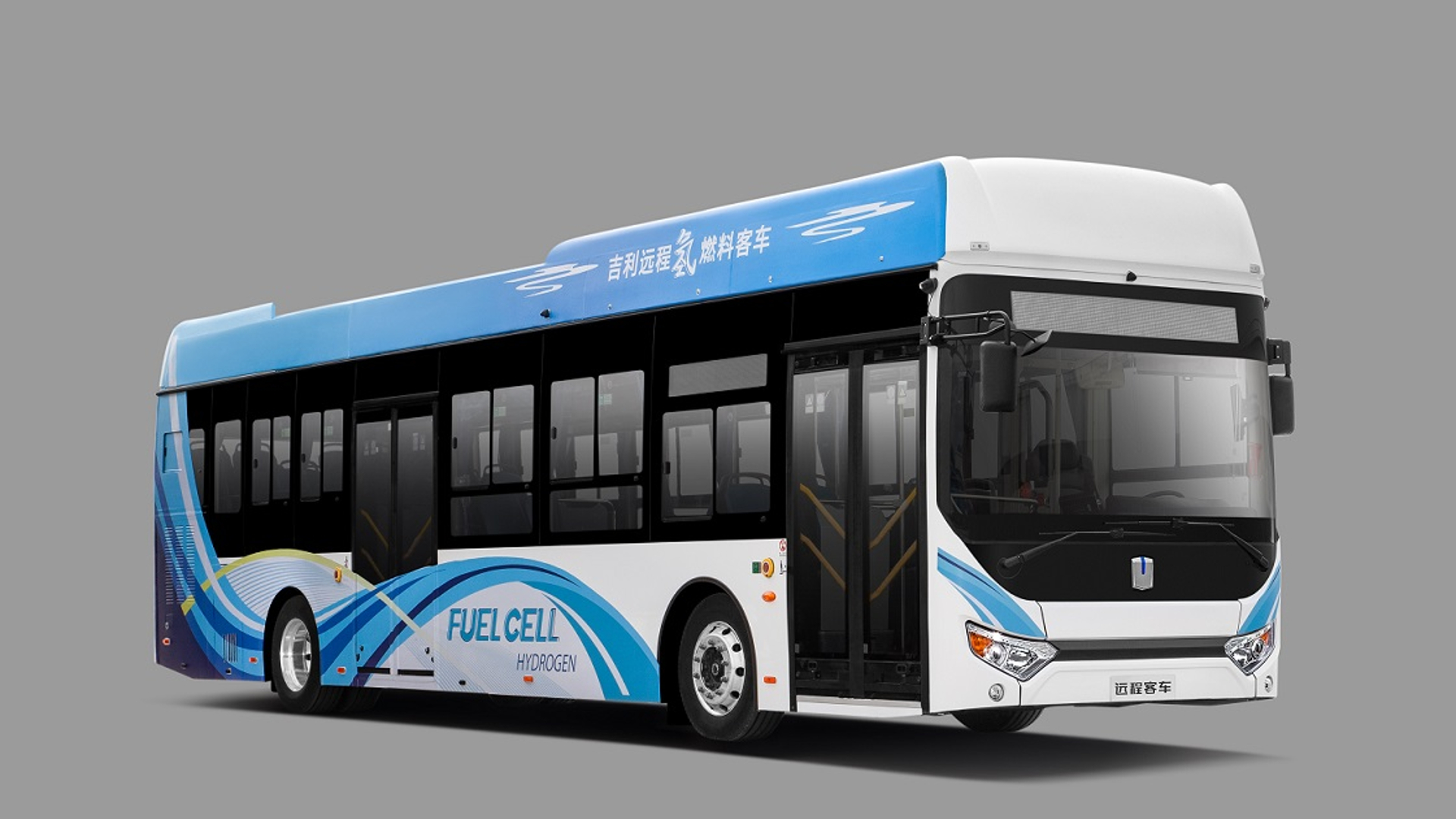

Battery-electric vehicles (BEV) may get all the attention, but quietly, fuel-cell vehicles (FCV) encroach on BEV territory. Chinese automaker Geely covers both bases by launching new buses, one powered by batteries, the other one electrified by a hydrogen fuel cell.
Under Geely’s New Energy Commercial Vehicle Group (CGV) subsidiary brand Yuan Cheng, the F12 hydrogen fuel cell bus and the C11 pure electric bus were introduced today in Beijing, China.
Geely says that the new hydrogen powered F12 city bus was “developed by GCV in response to China’s national new energy policy,” a not-so-subtle hint that the world’s biggest car market, and the world’s biggest EV-market, has shifted government attention and massive subsidies away from BEVs and towards fuel cells. Due to the pivot in government largesse, “a Chinese maker of FCV buses can make money simply by making the bus,” an industry insider told me recently. Chinese makers of pure BEVs on the other hand might face hard times brought by the disappearance of state support, analysts predict.
China’s BEV-to-FCV pivot was triggered during a fence-mending visit of Chinese Premier Li Keqiang to Japan in 2018, where old grievances over uninhabited rocks in the South-China Sea were forgotten in the face of a serious trade war between Donald Trump and the rest of the world, notably China, Japan, and Europe. During the trip, Li was shown around Toyota’s production sites, where he learned from Toyota CEO Akio Toyoda that the Mirai FCV takes only minutes to fuel for a driving range of 650km (400 miles).
After the trip, Chinese ministries were ordered to get on the FCV bandwagon STAT, and they did, with a speed only possible in China. Not quite coincidentally, Geely and Toyota started to discuss joint projects at around the same time. In April, Toyota said it would supply its fuel cell vehicle technology to Beijing Automotive Group (BAIC), a deal that also was triggered by Li’s Japan trip, as The Nikkei reported.
Fuel cell technology lends itself especially well to commercial application like trucks and buses. Commercial vehicles need to roll to make money, they should not waste it waiting for a charge. Batteries are heavy, and packing more into a vehicle to gain range quickly becomes self-defeating as energy is wasted hauling batteries instead of people or cargo. “A battery-electric 40 ton truck with 500km range needs 8 tons of battery. That’s ridiculous,” says Toyota’s FCV-boss Katsuhiko Hirose told me at the beginning of the year. “You want to transport goods, not a huge battery. A fuel cell stack is much lighter and easier to handle.”
Geely’s F12 FCV bus can transport people all day long on a full tank of hydrogen, says Geely. Re-fueling from a tank at the depot takes only 10 minutes, and the bus is good for another 500 kilometers of hauling people. Geely commercial buses are produced in two plants in China’s Nanchong, Sichuan and in Jinzhong, Shanxi provinces.